Hcg Diet Side Effects Hair Loss

Over the last few years, biotin has become an increasingly popular supplement, especially among women. Often, biotin supplements claim to promote hair and nail growth — if you take it consistently.
While biotin is associated with some great health benefits, does it really deliver on its promise of stronger nails and hair? Here, we're taking an in-depth look at biotin, from delving into what this supplement is and how it works to both the potential benefits and side effects associated with it.
Biotin, which is also known as vitamin H or vitamin B7, is a water-soluble vitamin. Part of the B complex group of vitamins, it helps the body convert food into energy. In fact, your body needs biotin in order to metabolize everything from carbs and fats to amino acids and protein.
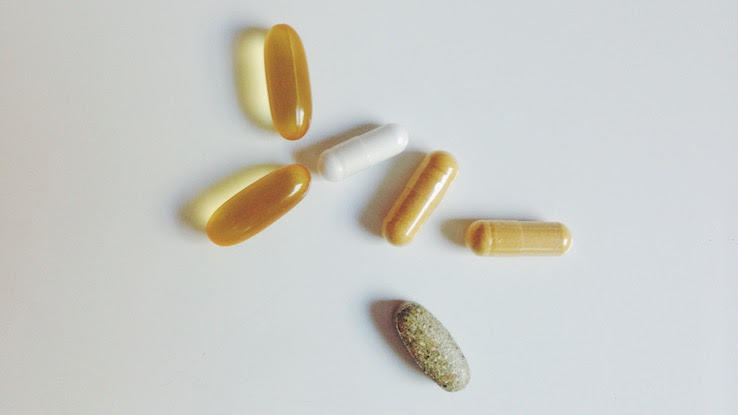
While biotin deficiencies are rare, they aren't unheard of. If you're experiencing a biotin deficiency, you may notice a few telltale symptoms, such as dry eyes, hair loss, dry or scaly skin, cracking in the corners of your mouth (cheilitis), and/or a painful, swollen tongue that's magenta in color (glossitis). In some cases, a biotin deficiency can lead to a loss of appetite, fatigue, insomnia and depression.
But B complex vitamins do more than just support your metabolic function; this group of vitamins also promotes skin, hair, eye, and liver health, which lead many supplement takers to associate biotin with their overall appearance.
So, Does Biotin Promote Hair and Nail Growth?
In recent years, everyone from supplement manufacturers to social media influencers have sung biotin's praises, claiming that shampoos, conditioners, hair oils and other biotin-containing products can help you grow thicker, healthier hair and stronger, healthier nails. Unfortunately, there isn't much data to support these claims.
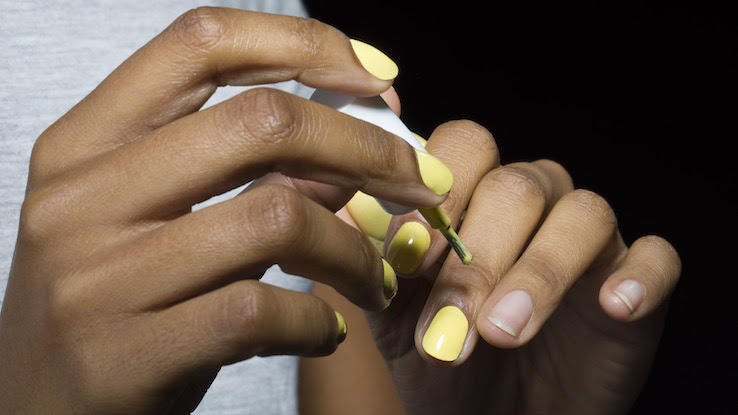
Of course, it is true that a biotin deficiency can lead to hair loss and weakened nails, so it's possible that taking a consistent, recommended dosage of biotin supplements can help you maintain your hair and nail health. But, again, there's no definitive research to back this up in certain terms.
"B vitamins play a key role in the function of the nervous system and do affect hormone function, which suggests why depleting biotin levels can, in turn, play a significant role in skin health," Susan Fyshe, a registered nutritionist and dietitian, told Canadian publicationChatelaine in an interview. All of this to say, if you have a biotin deficiency, supplements may help you get back on track, but if your hair and nails are already healthy and strong, taking additional biotin might not yield improvements.
Biotin's Effects on Your Metabolism and Cholesterol Levels
As we've noted, biotin helps you break down everything from carbs to fats and proteins. So, how exactly does biotin support your metabolic function? If you take biotin supplements, you may find that your resting metabolic rate is elevated, meaning you'll break down food more quickly.
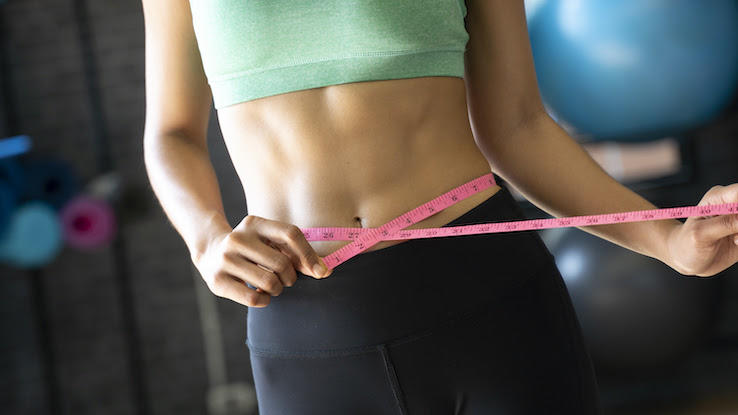
While research is still in its preliminary states, experts are studying biotin's effect — if any — on weight loss. Although it's unclear if it promotes weight loss explicitly, pairing the supplement with a healthy diet and a consistent exercise routine can certainly help you on your fitness journey. Additionally, studies conducted on animals have shown that biotin does play a role in lowering LDL (a.k.a. "bad" cholesterol) levels. Keeping your LDL levels in check can mitigate your risk of serious health conditions and events, such as heart disease and stroke.
Other Potential Benefits Linked to Biotin Supplements
Experts believe that biotin can reduce blood-sugar levels in people with type 1 diabetes. A 2013 study, which centered on a group of people between the ages of five and 25-years-old with type 1 diabetes, had some participants take 40 mcg of biotin alongside their daily insulin injections. Other participants just stuck to their regular insulin regimen. After three months, the group taking biotin supplements alongside their insulin had lower blood-sugar levels than those who did not take the biotin supplements.
Additionally, people who are pregnant are at a higher risk of a biotin deficiency. Several studies discovered that newborn animals — mice, hamsters, chickens — were more likely to be born with cleft palates and shortened limbs, for example, if their parent had a biotin deficiency. With this in mind, you may want to speak with your doctor about your biotin levels if you become pregnant.

Finally, taking higher doses of biotin may help treat patients with progressive multiple sclerosis (MS), namely because biotin is linked to the production of cellular energy and boosting nerve function. A year-long study involving 154 patients with secondary or primary progressive MS discovered that a daily intake of 300 mg of biotin improved the symptoms 91% of patients were experiencing. However, research surrounding biotin's link to successful MS treatment is still ongoing, so you should still discuss any treatment plans with your doctor before taking biotin.
Potential Side Effects Linked to Biotin Supplements
Before taking biotin — or any supplement — be sure to consult your doctor. Not only is it possible to take too much biotin, but the supplement may also interact with medications you are taking. Some side effects commonly associated with biotin supplements include nausea, cramping and acne. In some cases, biotin may impact the results of your lab work.
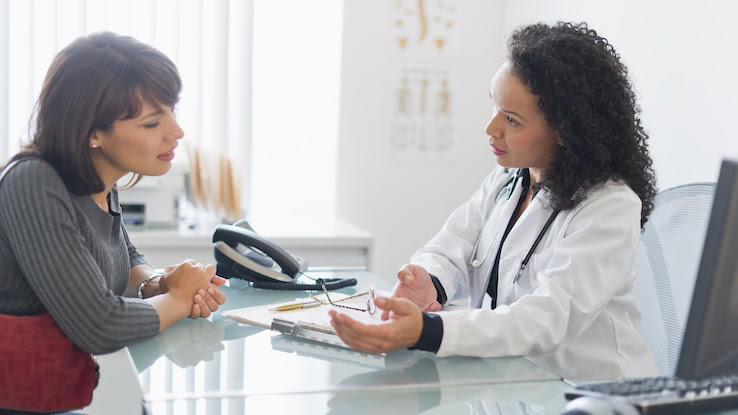
If you happen to be allergic to biotin — or if you take too much — you may develop a skin rash. "There have been instances of severe skin rashes from biotin, where blood vessels can become inflamed because the immune system perceives the biotin as something foreign," Dr. Tania Elliott, MD, an allergy and immunology specialist, told Bustle. She recommends patients speak with their doctors about dosages; starting with a smaller dose and working your way up to a full, prescribed dose can help your body acclimate to the supplement.
What Is a Safe Dosage of Biotin?
With its recent rise in popularity, biotin can be found in supplement form at both grocery and nutrition stores. Online retailers, such as Amazon, typically carry these supplements, too. Most often, biotin comes in capsule or tablet form, but it also naturally occurs in a variety of foods, including cauliflower, salmon, carrots, bananas, and some cereals.
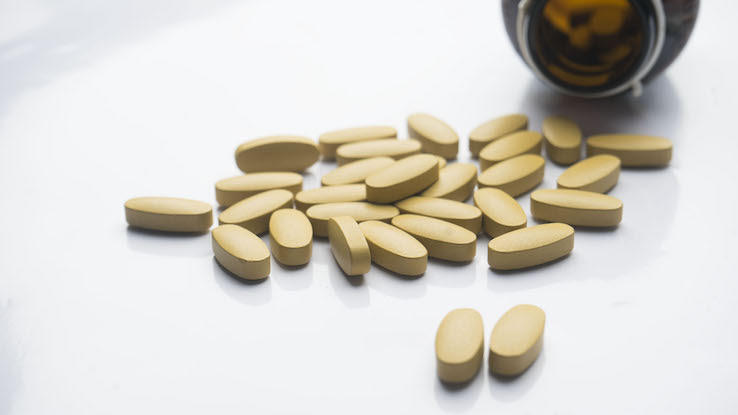
So, what is a safe dosage of biotin? That really depends on your age. According to the Mayo Clinic, the following factor into how much biotin you need daily:
- Recommended Dietary Allowances (RDAs): "RDAs are the amount of vitamins and minerals needed to provide for adequate nutrition in most healthy persons. RDAs for a given nutrient may vary depending on a person's age, sex, and physical condition [such as pregnancy]."
- Daily Values (DVs): "DVs are used on food and dietary supplement labels to indicate the percent of the recommended daily amount of each nutrient that a serving provides. DVs replace the previous designation of United States Recommended Daily Allowances (USRDAs)."
Broadly speaking, recommended biotin dosages are as follows:
- Infants (three years old and up): 10–20 mcg
- Children (four to six years old): 25 mcg
- Children ( seven to 10 years old): up to 30 mcg
- Adolescents/Adults: 30 to 100 mcg, depending on your doctor's advice
Again, these are the most common recommended dosages based on your age. Before taking any new supplements — in any amount — you should always consult your doctor.
Resource Links:
- "Biotin: 5 Healthy Benefits of This B Vitamin" via Chatelaine
- "5 Benefits of Biotin and Why Most People Don't Need a Supplement" via Insider
- "Health Benefits of Biotin" via Simply Supplements
- "Biotin" via Mayo Clinic
- "6 Unexpected Side Effects To Know Before You Take Biotin Supplements" via Bustle
- "Vitamin H (Biotin)" via Mount Sinai
MORE FROM SYMPTOMFIND.COM
Hcg Diet Side Effects Hair Loss
Source: https://www.symptomfind.com/health/how-effective-is-biotin?utm_content=params%3Ao%3D740013%26ad%3DdirN%26qo%3DserpIndex
0 Response to "Hcg Diet Side Effects Hair Loss"
Post a Comment